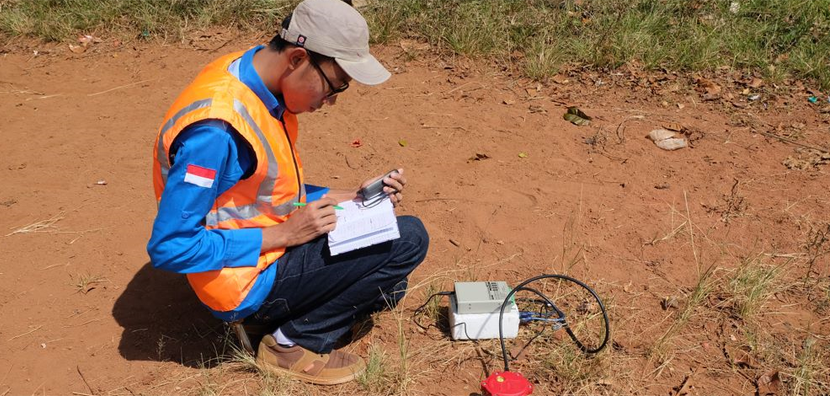Using the Shijay Project's Electrical Exploration Gear to Conduct a Resistivity Survey in India and Reveal Subterranean Structures
Geophysical exploration relies heavily on resistivity surveys because they help researchers and engineers find buried infrastructure and evaluate ground conditions. For precise and time-saving Resistivity Survey in India, Indian innovators at Shijay Project have developed state-of-the-art electrical exploration tools. This article explores the state-of-the-art resistivity systems developed by the Shijay Project, focusing on their salient features and potential uses in the Indian setting.
Tools for Electrical Exploration in the Shijay Project
The Shijay Project's IP Transmitter is a flexible equipment made for Induced Polarization (IP) surveys. The IP Transmitter's sturdy build and intuitive interface allow for rapid data gathering and transmission, guaranteeing accurate readings in a variety of geological conditions.
IP Receiver: The IP Receiver from the Shijay Project is an accurate tool for receiving and deciphering data from IP Transmitters used in resistivity surveys. The IP Receiver's sophisticated signal processing capabilities allow for precise measurements and detailed examination of subsurface features.
Shijay Project's Resistivity Survey in India OMEGA-48 is a major technological leap forward in the field of electrical exploration. Together, the IP Transmitter and IP Receiver form a complete system that can collect and handle data in real time. Because of its increased efficiency, the OMEGA-48 system is well suited for conducting nationwide resistivity surveys.
Designed specifically for resistivity surveys, the Electrical Exploration Transmitter VP-1000 from the Shijay Project is a high-performance device. The VP-1000's configurable settings and power output make it suitable for a wide range of survey applications. The transmitter is built to withstand harsh environmental conditions, making it ideal for use in the field.
An electrical exploration receiver with many uses, the Meri-24
The Meri-24, developed by the Shijay Project, is an adaptable electrical exploration receiver with many options. This cutting-edge receiver simultaneously assesses the ground's resistivity, self-potential, and induced polarization.
An electrical exploration receiver with many uses, the Meri-24
The Meri-24, developed by the Shijay Project, is an adaptable electrical exploration receiver with many options. This cutting-edge receiver simultaneously assesses the ground's resistivity, self-potential, and induced polarization. The Meri-24 is favored for a wide range of exploratory missions because of its portable size and intuitive interface.
The Induced Polarization (IP) approach calls for a sophisticated instrument, and the 8-Channel Receiver IMVP from the Shijay Project is just that. The IMVP's eight channels allow for simultaneous data collecting, thus cutting down on survey times. Its fast data processing speeds allow for accurate and timely interpretation of data.
Submissions from India
In India, the geophysical survey business makes substantial use of the electrical exploration equipment developed by the Shijay Project.
Among the most notable applications are
High-resolution data capture and interpretation skills are crucial for locating mineral resources, allowing mining corporations to make well-informed decisions about resource extraction thanks to this equipment used in mineral exploration.
Resistivity surveys are an essential part of groundwater mapping and exploration. The tools developed for the Shijay Project make defining aquifers easier and yield useful information on the quantity and quality of groundwater.
To evaluate soil and groundwater contamination, subterranean storage tanks, and landfill monitoring, the electrical exploration equipment is vital in environmental research.
Resistivity assessments are crucial to the success of infrastructure development projects including the building of roads, bridges, and tunnels. Construction sites can proceed without risk thanks to the tools provided by the Shijay Project, which help locate subsurface anomalies and potential risks.
Conclusion
The electrical exploration tools developed by the Shijay Project are changing the face of resistivity surveys in India. These state-of-the-art tools are capable of precise data collection, rapid analysis, and in-depth imaging of the subsurface. The electrical exploration equipment developed by the Shijay Project plays an essential role in a wide range of geophysical activities, from mining to mapping groundwater and building infrastructure, all of which contribute to India's economic growth.
For more information visit our website: ShijayProjects.com



.jpeg)

Comments
Post a Comment